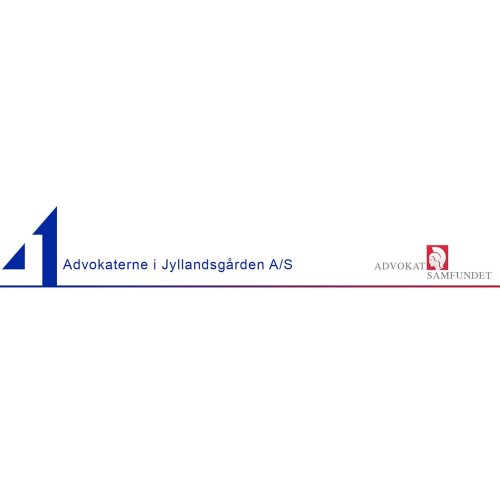Best Private Equity Lawyers in Aarhus C
Share your needs with us, get contacted by law firms.
Free. Takes 2 min.
List of the best lawyers in Aarhus C, Denmark
About Private Equity Law in Aarhus C, Denmark
Private equity law in Aarhus C, Denmark, is a highly specialized area focusing on legal issues related to investments made in private companies or funds that are not listed on a public exchange. Aarhus C, being the vibrant central district of Denmark's second largest city, is home to a thriving business environment, attracting both Danish and international investors. Private equity deals in the region span various sectors including technology, life sciences, manufacturing, and real estate. Legal professionals in this field assist with structuring investments, negotiating transactions, and ensuring compliance with Danish and European regulations.
Why You May Need a Lawyer
Engaging in private equity ventures, whether as an investor, entrepreneur, or fund manager, typically involves complex negotiations and significant financial stakes. You may require a private equity lawyer in these common scenarios:
- Forming, selling, or acquiring a private company in Aarhus C
- Negotiating venture capital or private equity investments
- Structuring private equity funds or partnerships
- Ensuring regulatory compliance with Danish and EU financial laws
- Managing disputes among stakeholders or with authorities
- Protecting your interests in buyouts, mergers, or exit strategies
- Performing due diligence for investments and acquisitions
Legal counsel is essential for safeguarding your interests, ensuring transactions are legally sound, and helping prevent costly disputes or regulatory issues.
Local Laws Overview
Private equity activities in Aarhus C, Denmark, are governed by a combination of Danish corporate law, contract law, and financial regulation, alongside direct applications of relevant EU laws. Some key legal aspects to consider include:
- Danish Companies Act: Covers the foundation, operation, and governance of Danish companies, including A/S (public limited companies) and ApS (private limited companies).
- Financial Supervision: The Danish Financial Supervisory Authority (Finanstilsynet) regulates fund formation, fundraising, and investment services.
- Mergers and Acquisitions: Share and asset acquisitions are subject to stringent due diligence and documentation requirements.
- EU Alternative Investment Fund Managers Directive (AIFMD): Imposes requirements on fund managers, disclosure, and reporting for private equity funds that qualify as alternative investment funds.
- Taxation: Tax structuring is critical, with corporate tax rates, potential withholding taxes, and VAT implications to consider during transactions.
- Employment Law: Employee rights and incentive structures are regulated under Danish labor law, impacting management buy-outs or restructuring transactions.
Understanding these regulations is vital to ensure lawful operation and optimal structuring of your private equity deals.
Frequently Asked Questions
What is private equity?
Private equity refers to investment in private companies, typically through the purchase of shares or assets, often with the aim of improving performance and eventually selling at a profit.
Can foreign investors participate in private equity deals in Denmark?
Yes, foreign investors can participate in private equity deals in Aarhus C, but they must comply with Danish and relevant EU regulations regarding investments and ownership.
Are there restrictions on forming a private equity fund in Aarhus C?
Fund formation is possible but requires adherence to Danish company law and may require registration or authorization with the Danish Financial Supervisory Authority, depending on size and investor base.
What due diligence is required for private equity transactions?
Thorough due diligence is required, examining financial, legal, tax, and operational aspects of the target company to assess risks and valuation.
How are private equity agreements typically structured?
Agreements often involve share purchase contracts, shareholder agreements, and management incentive schemes, tailored to meet the needs of investors, founders, and management.
What are the typical exit strategies for private equity investors?
Common exit strategies include trade sales, initial public offerings (IPOs), and secondary buyouts to other private equity funds or investors.
How are management incentives structured in private equity deals?
Incentives often include stock options, warrants, or earn-out agreements, stetschured under Danish employment and tax law.
Do I need regulatory approval for a private equity transaction?
Regulatory approval may be needed in cases involving large transactions, financial institutions, or compliance with antitrust and competition law.
What tax implications should I consider?
Tax implications can be significant, involving corporate taxation, capital gains tax, withholding taxes, and the use of holding companies, so early advice from a tax specialist is recommended.
How can a lawyer help with cross-border private equity transactions?
A lawyer ensures compliance with all relevant laws and regulations, coordinates with foreign counsel, structures the transaction for efficiency, and prepares necessary documentation to protect your interests in an international context.
Additional Resources
If you need further information or wish to get in touch with relevant authorities or organizations, consider contacting or consulting:
- Danish Financial Supervisory Authority (Finanstilsynet)
- Danish Business Authority (Erhvervsstyrelsen)
- Danish Venture Capital and Private Equity Association (DVCA)
- The Danish Bar and Law Society (Advokatsamfundet)
- Local law firms specializing in corporate and private equity law in Aarhus C
These bodies can provide regulatory guidance, business registration help, and professional referrals.
Next Steps
If you are considering a private equity deal or investment in Aarhus C, the first step is to seek professional legal advice from a local lawyer specializing in corporate and private equity law. Gather all relevant information about your planned activity, the companies or funds involved, and your investment goals. Your lawyer can then:
- Assess the legal and regulatory framework applicable to your situation
- Assist with due diligence and risk analysis
- Structure and negotiate agreements
- Guide you through regulatory and licensing requirements
- Advise on tax planning strategies
- Ensure compliance with Danish and EU law for a smooth, secure transaction
Choosing a lawyer with specific expertise and an understanding of the Aarhus C market will help protect your interests and maximize your investment opportunities.
Lawzana helps you find the best lawyers and law firms in Aarhus C through a curated and pre-screened list of qualified legal professionals. Our platform offers rankings and detailed profiles of attorneys and law firms, allowing you to compare based on practice areas, including Private Equity, experience, and client feedback.
Each profile includes a description of the firm's areas of practice, client reviews, team members and partners, year of establishment, spoken languages, office locations, contact information, social media presence, and any published articles or resources. Most firms on our platform speak English and are experienced in both local and international legal matters.
Get a quote from top-rated law firms in Aarhus C, Denmark — quickly, securely, and without unnecessary hassle.
Disclaimer:
The information provided on this page is for general informational purposes only and does not constitute legal advice. While we strive to ensure the accuracy and relevance of the content, legal information may change over time, and interpretations of the law can vary. You should always consult with a qualified legal professional for advice specific to your situation.
We disclaim all liability for actions taken or not taken based on the content of this page. If you believe any information is incorrect or outdated, please contact us, and we will review and update it where appropriate.

















